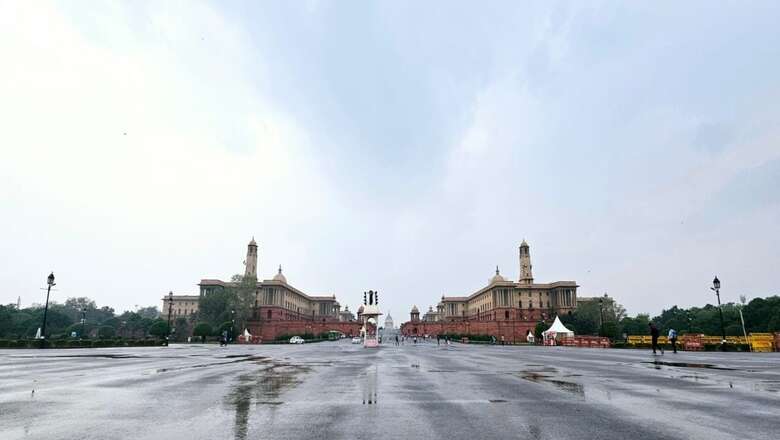
views
Delhi has recorded 29.9 mm of rainfall in the first four days of this month, making it the wettest February in the last 10 years, The Times of India reported.
The Met Office data shows that the last, Safdarjung, the city’s base station, recorded a higher rainfall than this, was in February 2014 at 48.8 mm rainfall. February 2023 did not witness a single rainy day, while in February 2022, Delhi saw 29.7 mm of rainfall.
Though the city has recorded excess rainfall in February this year, an analysis of the Met Department’s data of the past 10 years shows that most Febs recorded deficit rainfall.
Delhi recorded a maximum temperature of 20.3 degrees Celsius, two notches below the season’s average, after light morning rain, according to the India Meteorological Department (IMD). The minimum temperature in the city settled at 11.9 degrees Celsius, three notches above the season’s average, the IMD said.
Different pockets of Delhi received light rain between 5 am and 8 am under the influence of an active western disturbance.
The city received 3 mm of rainfall in the last 24 hours which ended at 8:30 am. The IMD had predicted more rain and moderate fog during the night hours. The humidity level was 83% at 5:30 pm.
The Air Quality Index (AQI) in Delhi was recorded at 282, in the ‘poor’ category, at 7 pm, according to Central Pollution Control Board (CPCB) data. An AQI between zero and 50 is considered ‘good’, 51 and 100 ‘satisfactory’, 101 and 200 ‘moderate’, 201 and 300 ‘poor’, 301 and 400 ‘very poor’, and 401 and 500 ‘severe’.
(With PTI inputs)


















Comments
0 comment